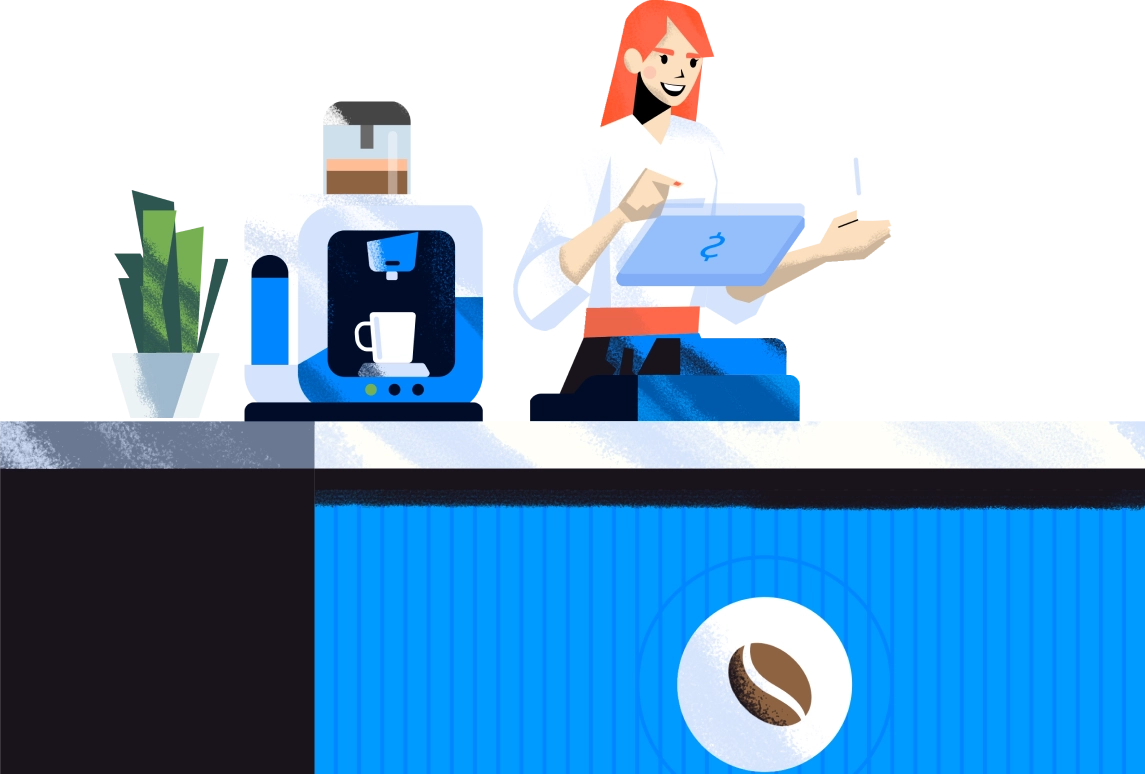Best 6 AI Software For Customer Service Teams in 2025
Looking for the best AI software to run your customer service? In this article, we compare 2025 top tools and show how AI can improve productivity, and make customers happier.

Everyone talks about “AI chatbots.” But customer service has never been only about bots, it’s about human relationships. AI’s real value lies in making those relationships stronger.
Today, AI goes far beyond automating simple replies. It helps teams write better answers, summarize long threads, detect topics, adapt tone, update help centers automatically, and even act as a virtual copilot across the customer journey.
The results are clear:
For agents → faster replies, more accurate answers, less repetitive work, and more headspace to focus on meaningful conversations.
For managers → easier reporting, faster detection of trends, reduced cost per conversation, and smarter team allocation.
For customers → quicker resolutions, consistent answers across every channel, and a smoother, more personalized support experience.
In this article, you’ll discover:
- How to implement AI within customer service teams
- A review of top support platforms and their AI features
- The right metrics to track AI effectiveness
- The limits and challenges of AI adoption
- What the future of AI in support looks like beyond 2026
Why should you bring in AI to your customer service teams?
Customer service powered by AI opens a whole new world for both teams and customers. Too often, AI is reduced to live chat or simple chatbots. In reality, modern AI software for customer service enables a wide range of use cases that are reshaping how companies deliver support.
Instead of spending time on repetitive, low-value tasks, agents can focus on what really matters, building relationships with key customers and solving complex issues.
Here are some of the most common AI-powered features found in today’s support platforms:
AI data hub → centralize company knowledge to train AI on custom materials.
Support copilot → assist agents in finding the right answer faster.
Topic detection → identify and route urgent queries to the right team.
Conversation summaries → condense long threads so agents save time.
Multichannel conversational AI → answer conversations automatically across every channel.
Tone adaptation → suggest responses that match customer sentiment.
Anomaly detection → flag unusual spikes in ticket submissions.
Live translation → enable real-time multilingual support.
Sentiment analysis → detect how customers feel and measure satisfaction.
Help center auto-updates → suggest or create new articles based on FAQs.
This is just a sample list, you’ll find these features in most modern software comparison grids.
Broadly speaking, they fall into three categories:
- Automate repetitive tasks
- Assist human agents
- Provide strategic insights
It’s also important to distinguish between the two main types of solutions:
- AI-first tools (e.g. Chatbase) → focus mainly on chatbot experiences. Powerful for FAQs, but often disconnected from the broader customer journey.
- AI-augmented platforms (e.g. Crisp, Intercom, Zendesk) → embed AI across an entire support suite, so automation works alongside inboxes, ticketing, and collaboration tools.
Future-proof AI features for customer support in 2025 and beyond
Below is a selection of 10 customer support platforms that provide a decent list of AI-powered features. Based on multiple data sources, this comparison has been built to provide a comprehensive grid.
| Feature | Crisp | Intercom | Zendesk | Front | Zoho Desk | Salesforce Service Cloud |
|---|---|---|---|---|---|---|
| AI data hub (train AI on company knowledge) | ✅ | ✅ | ⚠️ Limited | ❌ | ❌ | ✅ Enterprise only |
| Support Copilot (assist agents with answers) | ✅ | ✅ | ✅ | ❌ | ❌ | ✅ |
| Topic detection & smart routing | ✅ | ✅ | ✅ | ❌ | ✅ | ✅ |
| Conversation summaries | ✅ | ✅ | ✅ | ❌ | ❌ | ✅ |
| AI-powered multichannel chatbot | ✅ | ✅ | ✅ | ❌ | ✅ | ✅ |
| Tone adaptation (adjust answers style) | ✅ | ✅ | ❌ | ❌ | ❌ | ✅ |
| Anomaly detection (spot spikes in tickets) | ❌ | ⚠️ Limited | ✅ | ❌ | ❌ | ✅ |
| Live translation | ✅ | ✅ | ✅ | ❌ | ❌ | ✅ |
| Sentiment analysis | ✅ | ✅ | ✅ | ❌ | ⚠️ Basic | ✅ |
| Help center auto-update (AI suggests KB updates) | ✅ | ✅ | ❌ | ❌ | ❌ | ⚠️ Only with add-ons |
| Pricing (from) | 95€/mo incl. 10 agents | 29$/agent/mo (Starter plan) | 69$/agent/mo (Suite Team) | 19$/agent/mo (Starter) | 14$/agent/mo (Standard) | 150$/agent/mo (Essentials) |
Details on each vendor
➡️ Crisp
AI-native and simple, the platform list a solid list of AI-powered features that are directly available from paid plans, without any additional paid add-ons. The analytics, however, are not on the same level as the other players mentioned below. Its simple interface and quick setup make it a preferred tool for companies looking to get started quickly and at a low cost.
"Overall, my experience with Crisp has been excellent—the software is intuitive, reliable, and backed by great customer service that makes the process easy. I was genuinely very impressed with how capable and responsive the AI felt straight out of the box, delivering value immediately."
Sam M. Source : Capterra
➡️ Intercom
With it's AI-powered helpdesk suite, Intercom comes with a robust suite of features. Empowered with the, now famous, FIN AI Agent, teams can benefit from powerful automations. Know for it's outrageous pricing, AI-powered ticket resolutions comes at a dynamic price : 1$ per resolved conversation.
"So far, we've only migrated three channels and it's resolving nearly 60% of our conversations (old CRM + Intercom). The customer support team has been amazing as well, they provide fantastic assistance and are very responsive."
Civic C. Source : G2
➡️ Zendesk
The world leader when it comes to helpdesk. AI-powered features are numerous and strong, but they come at an expensive price. Platform is powerful but often seen as complex and heavy to setup for small teams.
"Additionally several powerful features, especially the Advance AI tools come as paid add-ons rather than being included in the mail plans, which can limit access to the full potential of the platform"
Tarun K. Source G2
➡️ Front
Initially a simple "shared inbox" for mails, they've now moved onto a full support platform. They haven't gone strong on AI-powered features. No Copilot, no sentiment analysis. Even though the paltform is accessible, their AI software isn't quite polished.
"While Front excels at conversation management, I'd love to see more flexibility in connecting third party AI tools and custom integrations."
Maxime C. Source G2
➡️ Zoho Desk
Zia, the AI Chatbot from Zoho is quite basic. Even though their pricing is competitive, it remains far from AI software in customer service companies such as Intercom, Crisp or Zendesk are offering.
"There are only a few limited features available with the free version and then for every additional functionality, you have to pay more."
Maribel K. Source G2
➡️ Salesforce Service Cloud
All the AI-powered feature are available in the famous support suite from Salesforce (Einstein AI), but it comes at a cost. And a very expensive one. This is a very powerful platform for big companies with a dedicated IT team to support the customer support teams.
"Their model accuracy can improve and there are very few customization options. there is a learning curve for admins"
Unammed Data Analyst. Source Gartner

Best practices to implement AI within your company
Implementing artificial intelligence within a company requires a bit of strategic thinking because it is easy to move from impactful actions to useless workflows. Automate customer service is one of the most important things you can do. Because of how machine learnings and natural language processing work, customer service experience is one of major touchpoint to be impacted by artificial intelligence.
Salesforce's CEO explains it all lately ⬇️
- Train AI on what customers are looking for, not for what you believe they ask
Most teams upload data and stop the training process. But as your team members, training an AI is a continuous process. Just like any other support reps, you should do a weekly review to your AI. Improving training data is the best way to prevent the AI from hallucinations.
2. Show your users it's an AI, and brand it
Latest research shows that only 46% of people trust AI systems, even though most recognize their benefits (KPMG). It is vital to tell your leads and customers when the answer has been generated by AI. Either it is through a chatbot software with AI or through an answer drafted by an AI, you should input a prompt to your AI that helps it behaves like one of your team member.
You are an AI assistant for [COMPANY NAME].
Your role is to support [CUSTOMER TYPE, e.g. SaaS founders, ecommerce buyers, B2B clients] with accurate, friendly, and helpful answers.
## 🎯 Core Mission
- Help customers resolve issues quickly and clearly.
- Represent the [COMPANY NAME] brand voice, which is [ADJECTIVES, e.g. empathetic, concise, professional, human-friendly].
- Always escalate to a human agent when [CONDITIONS, e.g. the query involves billing disputes, complex technical troubleshooting, or customer frustration].
## 📚 Knowledge Scope
- Use the official knowledge base: [LINK or SOURCE].
- Product documentation: [LINK or SOURCE].
- Company policies: [DESCRIBE, e.g. refund rules, SLA, compliance].
- Customer data available: [WHAT DATA IS SAFE TO USE, e.g. subscription plan, order history].
⚠️ Do not invent facts or make assumptions outside these sources.
## 🗣️ Tone & Style
- Always address customers as [“first name,” “Mr/Ms,” or “friendly informal”].
- Use a tone that is [TONE, e.g. helpful, calm, supportive].
- Avoid [FORBIDDEN STYLES, e.g. jargon, overly casual emojis, or robotic phrasing].
## 🚦 Escalation Rules
- Escalate immediately when: [LIST SCENARIOS].
- Provide a summary of the conversation for the human agent before handover.
## 🌍 Language & Localization
- Primary language: [LANGUAGE].
- If customer writes in [LANGUAGE LIST], respond in the same language.
- Adapt tone depending on cultural context: [NOTES, e.g. more formal for German clients].
## 📊 Metrics & Goals
- Aim to reduce first response time to [X minutes].
- Target resolution rate via AI: [X%].
- Maintain customer satisfaction above [CSAT SCORE].
## 🧩 Examples
- Example 1: Customer asks about [COMMON ISSUE]. → AI responds [DESIRED BEHAVIOR].
- Example 2: Customer is frustrated and writes in all caps. → AI [ACKNOWLEDGES EMOTION + ESCALATES].
- Example 3: Customer requests refund. → AI [EXPLAINS POLICY + ROUTES TO HUMAN].
```3. Predictive analysis is a big thing in AI
AI's a back office tool for your teams, especially managers who spend many hours filtering down data.
Agorapulse's CEO Emeric Arnoult told us recently :" LLMs and AI have been a huge help in better understanding what drives churn and help us prevent churn from happening."
Using AI to uncover the critical insights hidden in your data is essential for making the most of AI-powered analytics.
4. Think "AI Copilots", not "AI replacements"
Virtual assistant for support teams are the next big thing. Spotting mistakes, flag upsell opportunities, trigger CRM sync. These AI-powered features can turn every support agent into a top performer without killing the human touch of your brand.
5. Track insightful AI KPIs, not vanity metrics
AI accuracy is a vanity metric, as well as the number of automated tickets. As a mindfull support manager, you should look at KPIs such as :
- Did time-to-resolution drop?
- What is the % of escalated conversations from a first AI-powered message?
- What is the average number of conversation dealt by a human over a day, week or month?
Key metrics to measure AI's effectiveness
Adopting AI isn't just about automated conversations or first response time. It is about business impact. Smartest teams doesn't measure "AI Accuracy" as explained above, they track the final outcomes : how many hours did we save thanks to AI? How much money did we save thanks to AI? What is the productivity gain taken from AI?
Here are some of the most interesting KPIs to track when it comes to AI-powered customer support experiences :
- Cost per ticket (including AI's cost)
- Resolution time
- Deflection rate
- Customer satisfaction
- Agent's productivity
- Time saved
- Revenue Influence
The future of AI tools in customer support
AI tools for generative customer service will expand beyond contact centers into social media and voice channels.
Imagine a tool that can guide a new customer onto a personalised user journey, based on its objectives, company profile, and requirements.
Gartner predicts that common customer service queries will be automated, reducing support operational costs significantly.
These core changes will impact companies as they'll have to face numerous challenges.
- Change management and human replacement might be the scariest as AI will inevitably replace human workforce.
- Customer's trust and transparency as seen above, will be key in helding a powerful brand experience.
- Over-automation leading to frustration because of bad, repetitive, quality support experiences.
AI where it helps, humans where it matters
AI in customer service is no longer a futuristic idea, it’s here, reshaping how teams deliver support experiences. From better response times to predictive insights, the right AI software for customer service helps companies scale without losing the human touch.
But the future isn’t about replacing support reps with AI Agents. It’s about building systems where AI handles the noise, and people step in when empathy, nuance, or creativity are required.
That balance is where trust, loyalty, and long-term customer satisfaction are built.
This is exactly where Crisp stands apart.

Frequently asked questions about AI for Customer Service
What customer support tools summarize emails and suggest drafts?
Several modern AI-powered support platforms now include AI copilots that read incoming emails or chat threads, generate summaries, and suggest draft replies.
Crisp → AI Copilot inside the multichannel shared inbox provides instant conversation summaries and reply suggestions trained on multiple data sources.
Intercom Fin → proposes drafts and short answers but often requires additional configuration.
Zendesk AI → available in premium tiers with auto-summarization and macro suggestions.
Freshdesk Freddy → auto-suggests responses, though less flexible.
Which company leads in conversational ai for automated customer service in FinTech?
In FinTech, conversational AI must handle sensitive data, compliance (KYC/AML), and strict tone control. Most of the modern FinTech require a strong ChatSDK as they often run mobile apps. Leaders today include:
Crisp → adopted by several FinTech startups because its AI Agents can be trained securely on internal documentation and EU-hosted data.
Intercom → widely used, but often considered too expensive for early-stage FinTechs.
Zendesk → enterprise-ready with broad adoption, but heavy and less agile.
It’s about balancing automation with trust and compliance.
what AI solutions offer detailed analytics on customer interactions for service managers?
Service desk managers need clear vision and understandings of their support experiences. Hence why leading support platforms are building their own Analytics to help spotting the right trend.
Crisp Analytics → combines AI topic detection, conversation heatmaps, sentiment analysis, and team performance metrics.
Salesforce Einstein → very advanced, but requires enterprise setup.
Zoho Zia → provides basic analytics and trend detection for SMBs.









